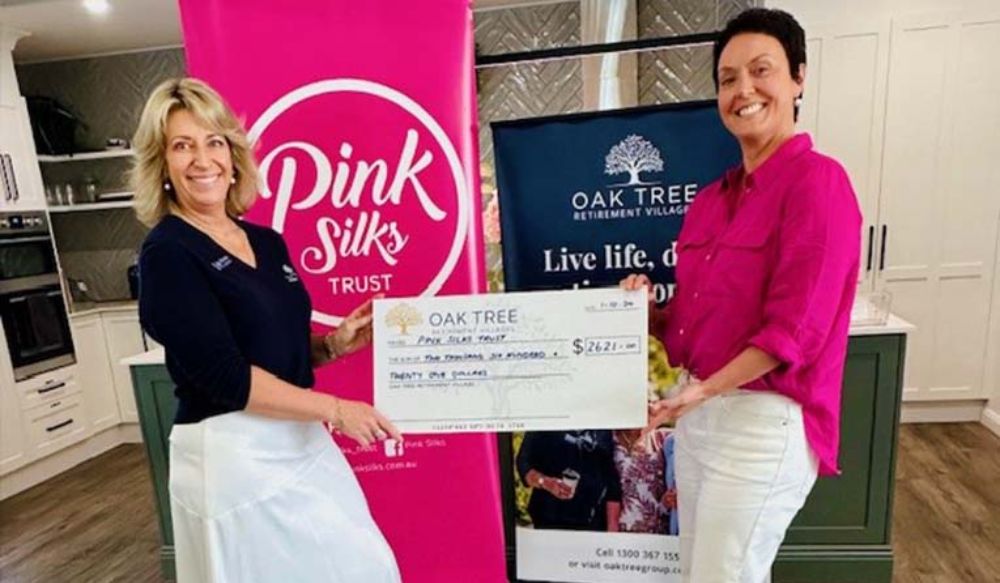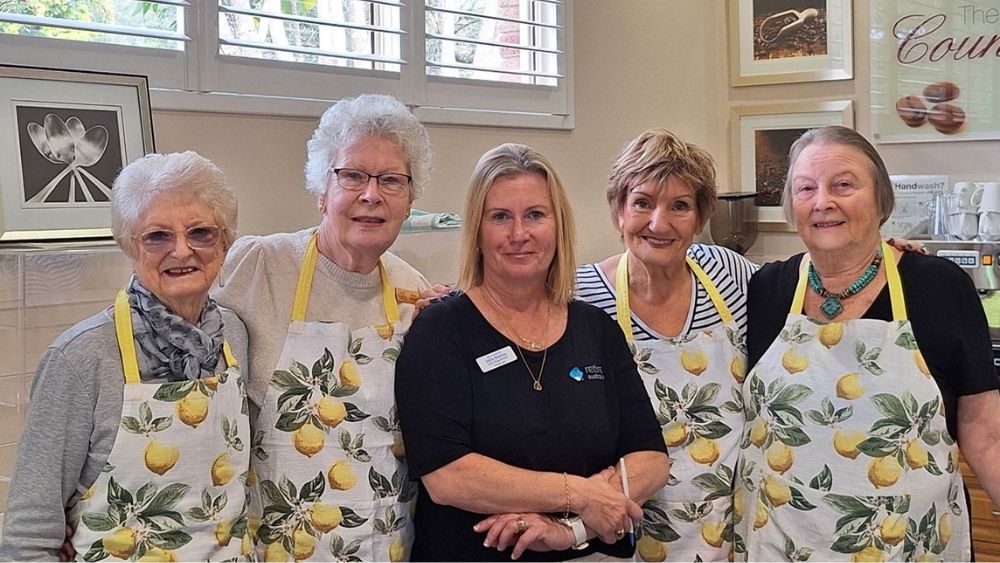
Interview with NSW/ACT Retirement Village Manager of 2024, RetireAustralia’s Jodie Shelley on life inside a community
- Categories Awards, Interviews with James Wiltshire, Key things to help you everyday, Uncategorized
- Date August 22, 2024
Did you have other jobs before becoming a Village Manager?
When I left school, I commuted to Sydney for a few years to work as an insurance clerk with AMP. I then joined Westpac Bank as a teller. I spent 24 years with Westpac, 15 of those years were in management. I have also worked for a short time in real estate and now 12 years in the retirement industry.
What do you enjoy most about being a VM? What attracted you to the role?
As a Village Manager you can make a real difference. You play a key role in improving the quality of life for residents, ensuring they have a comfortable and enjoyable lifestyle. I really enjoy being part of a community, assisting with events and activities and being able to see the positive impact that my efforts have on their happiness and well-being.
Can you remember your first day? Tell us all about it?
Aside from being completely unfamiliar with the role and bombarded with residents introducing themselves, my first day was great. I was extremely lucky to have had a lovely staff member that was the administration assistant, she had been at the village for over 20 years and was my rock of support for months. I was so grateful.
What do you feel are the skills needed to be a VM?
The role encompasses a variety of tasks, from administrative duties to hands-on problem-solving, and often involves addressing various challenges and finding solutions.
You need to have a great listening ability and be invested in the wellbeing of residents and their families while addressing the day-to-day challenges that arise.
Life certainly can be challenging, and no day is ever the same in the village. So, you need to be able to adapt to whatever hurdles the day brings.
Having knowledge around operations, committees and budgets is critical; as well as being able to manage intense situations and resident disputes and conflicts in a sensitive manner.
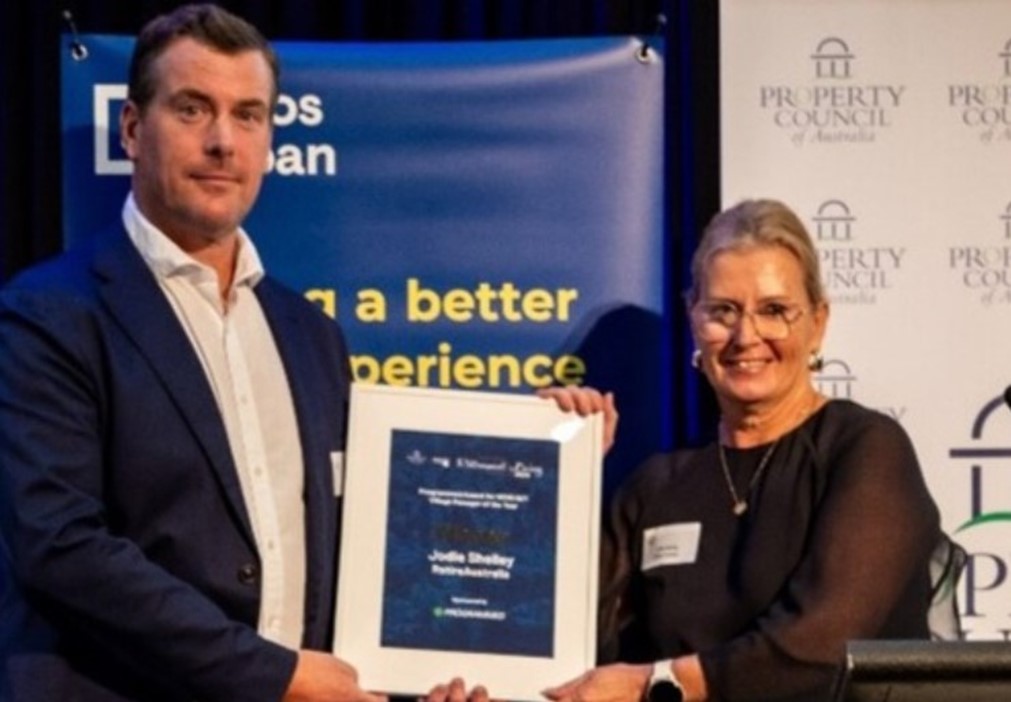
How has village managing changed? How do you see the future?
Retirement village management is changing every day, with the focus now on personalised care and living options. This means managers will need to identify all the care requirements of residents and initiate conversations with families who are potentially unaware of their family member’s decline in health.
We also need to introduce more wellness opportunities for our residents, to assist with not only physical and mental health but also with resident social connection.
I also see environmental sustainability becoming a huge focus in the villages in the next few years. We are already seeing residents purchasing electric cars and are looking at the potential change to rechargeable equipment in the village. Our village is currently working with residents on a waste reduction program to assist with soft plastic removal.
You manage RA’s largest village, and it is going to get even larger! Will you be asking for help? How do you envisage it?
Whilst we are about to increase the number of independent living units and therefore the number of residents, I don’t see this impacting me to any significant degree. We are already a large village of 359 villas and 79 serviced apartments, so I don’t think an additional 42 apartments is going to make a significant difference.
RetireAustralia’s leadership team and various departments also provide enormous support which definitely lightens my workload. This frees me up and allows me to focus on village staff and the delivery of services to residents, and my focus will be to sustain these across the expanded village.
We keep staffing, resourcing and operations issues under constant review to ensure our resident experience is the best it can be. So, once the apartments are up and running, we’ll make any necessary adjustments, if required.
When we visit a land lease community, the manager only opens his door to residents from around 10am to 2pm or even less. Do you have an open-door policy, or do you allow yourself time to do what is necessary for yourself?
My door is always open, and I love that residents can call in and chat to me about anything.
This is such a critical part of building trust and relationships with residents and allows you to resolve an issue prior to it escalating to a much bigger issue, as you have been able to discuss earlier.
Being able to chat about their families or what they might have done during the day or to ask me what is happening with my own family. It’s lovely.
I would imagine in a well-run village; the bulk of the residents take care of themselves. How do you encourage residents to take part in village community events?
We are extremely fortunate to have such an active community at Tarragal Glen. Having proactive residents really assists management in engaging with new residents and those residents that are less likely to attend events.
We always look at ways we can make it easier for residents with transport etc. When we are looking to hold an event outside of the community, we do what we can to coordinate the village bus to transport residents to make the outing easier.
What is the nicest thing a retirement village resident has ever done for you?
A few years ago, I lost my stepfather to cancer. I was very close to him and his loss hit me extremely hard.
On the day of his funeral and during the service, I happened to look to the back of the room and standing there very unassuming was one of my residents. She hadn’t mentioned to me anything about attending and it was very unexpected, having not known my stepdad.
I remember just looking at her and she just gave me the tiniest little smile. It was just enough to know that she had come to support me.
I couldn’t believe it.
Australia's largest professional development for village and community manager and head office staff.
You may also like
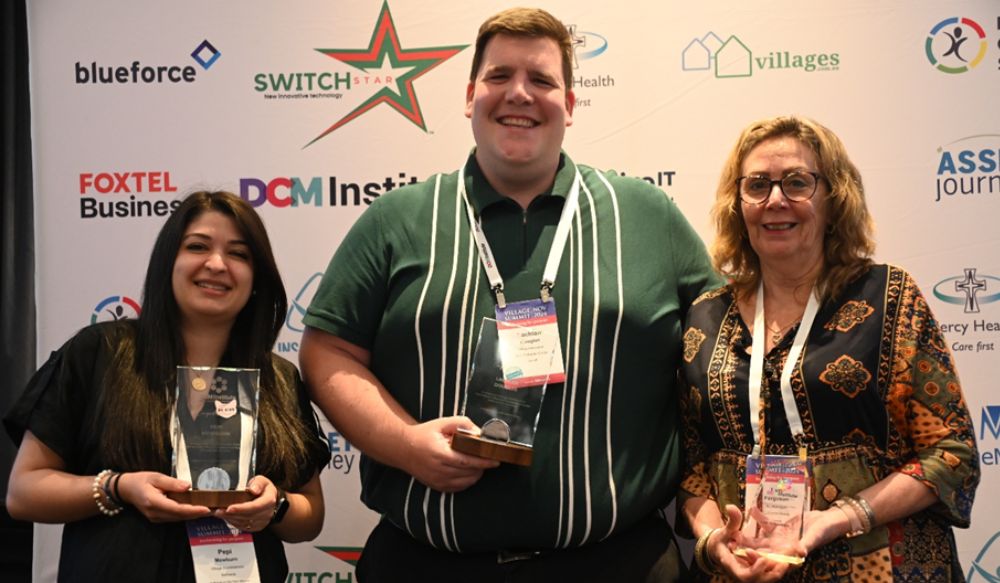
More professionals reach great heights at Village Summit
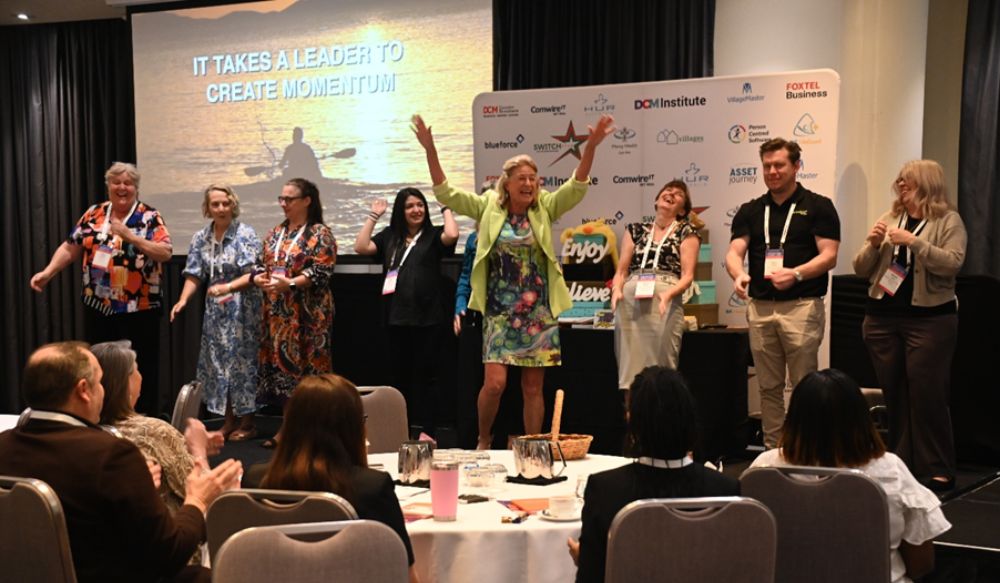
“What a fabulous line up of presenters”
